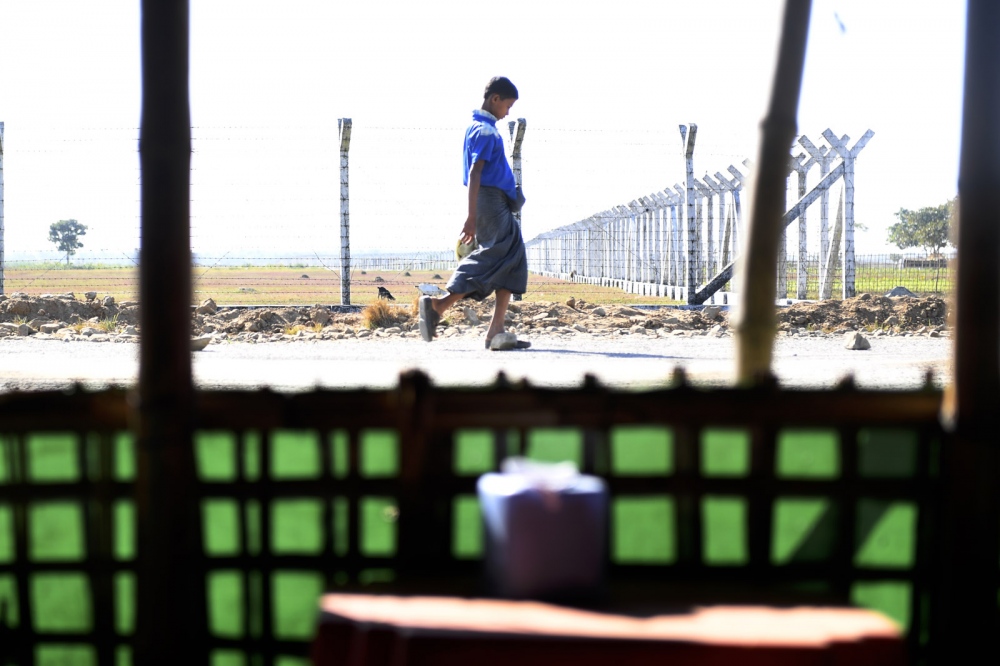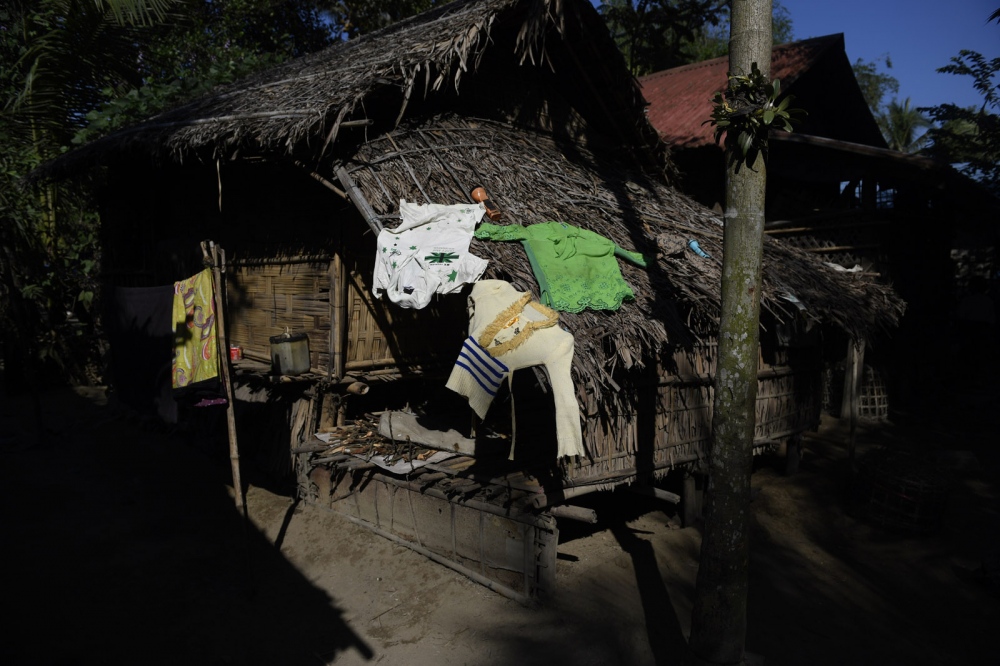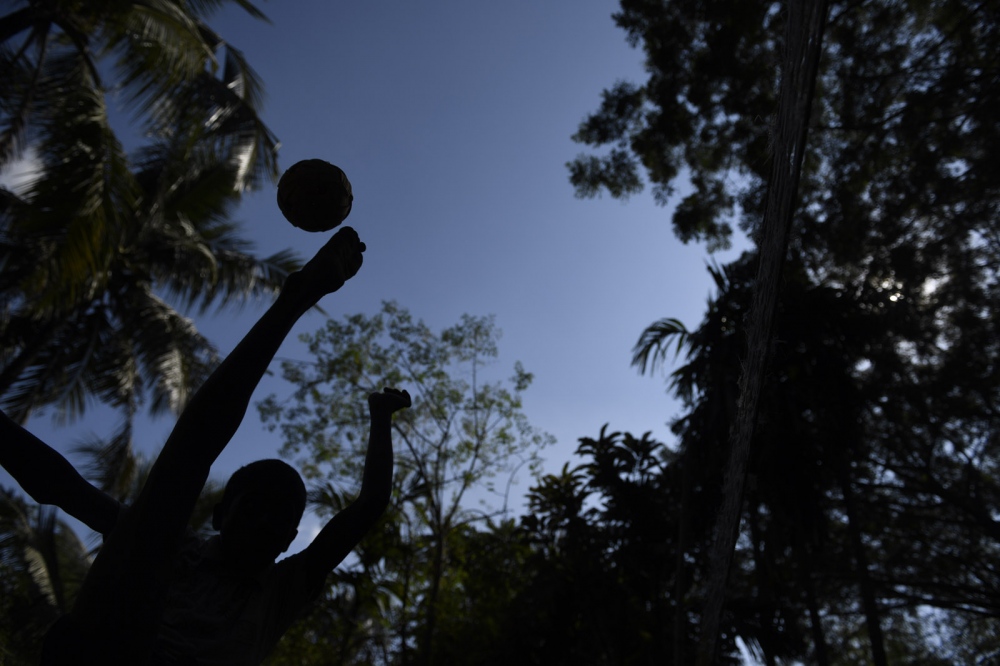I met them but apparently they are not exist.
Approx 2,000 Rohingya people (303 families) live in Katin Pick Pyin Chay village, also known as Pyalichaun by Rohingyas and they live in temporary wooden shelters with temporary identification issued by government. It is impossible to cross a checkpoint for the Rohingya people to get into Sittwe downtown where the living facilitates situate.
Since 31 people burned up to death in the sectarian violence in Nazi village on June 21, 2012, the military dictatorship has forced to move Rohingya people out from the downtown and the Army force stationed in Katin Pick Pyin Chay village.
Though, the Rohingyas persecuted under the military dictatorship have affected to get better situation, with new state in 2015, the Aung San Suu Kyi's administration treats them in a worse way after accusing a Rohingya as a terrorist for killing 9 border-guards in October, 2016.
Although the Rohingyas have government issued identification, those papers are useless. The Rohingya people can not help becoming self- sufficient in everything within their own community.
Abu Darda, 25 years old, is a teacher in Katin Pick Pyin Chay village, he came to this village for a job in 2011 but since the affair at Nazi in 2016 he can not go back to his hometown. He teaches 5 subjects to the upper grades in the elementary school such as Math, English, Myanmar language, Science and Geography. The community built their school for the children but can not afford to pay full salary to the 7 teachers.
After graduation of this elementary school, the students go to the middle and high school located in Thet Kal Pyin village, 6km afar from this village. These schools were built voluntarily by Rohingya community as well.
Alom Bahar, 50 years old, lives with her husband in this village. Her son and daughter died from a unknown disease without medical care two years ago and her 7 year-old grandson suffers from severe burns with swollen testicles. According to MSF(Médecins Sans Frontières), he needs the hospital care in Sittwe downtown, but they don't have freedom to move.
Mrs. Noorbar, 60 years old, suddenly lost her sight in her right eye two month ago. She can not dream about the medical treatment at the hospital.
Samudi, 52 years old, the head of community, appeals to the international society, sincerely.
Despite all the relief organisations' enthusiastic activities, their donation of bricks for housing construction are not sufficient at all. He says "We need food, and land to farm and build a house. We can do nothing here. There is no electricity, no water pipe. We cannot shop grocery in downtown, as well."
There is no Aung San Suu Kyi's democracy desired, and no human rights advocated by the international community anywhere here. The children put all human labour to build a road all day, and they do nothing, but prey, when they are ill. The Muslims in Yangon have official ID cards, and they have no discrimination or restriction of their actions. But the Muslims in Rakhine province are considered as strangers, called Rohingya people.
Rohingya issue is not the religion problem anymore. This is about the 'massacre of racial minority' issue. The town located 20 km far from Sittwe, became a prison without bars. And "Freedom from fear" turned out false.















